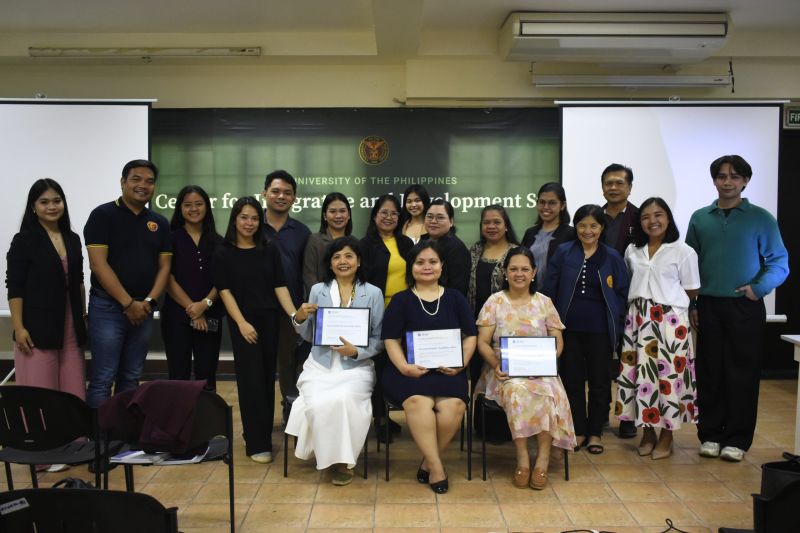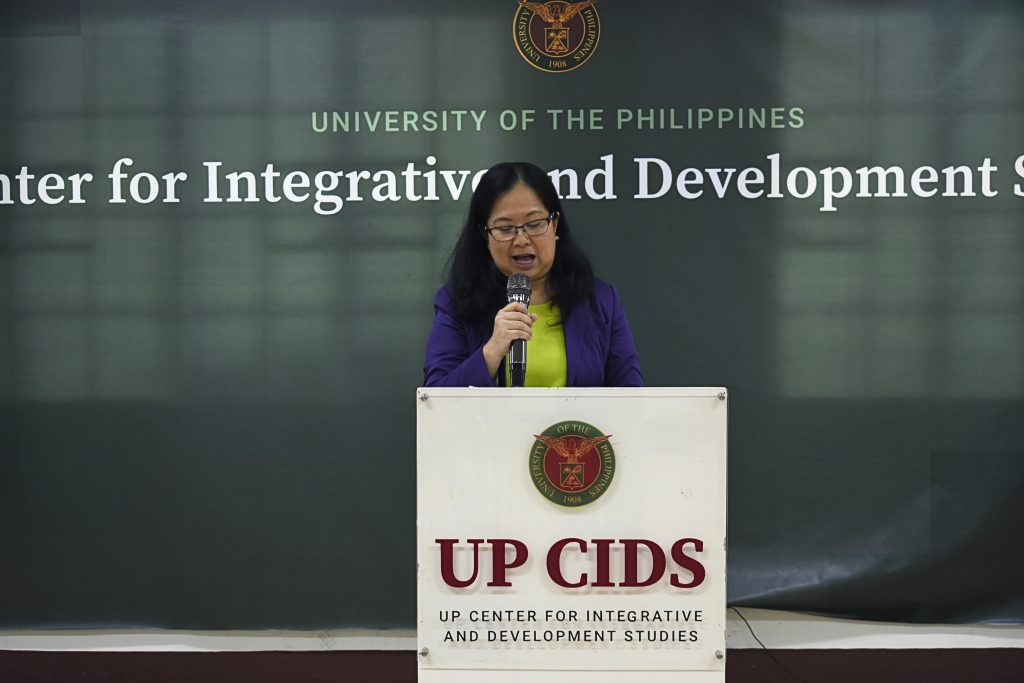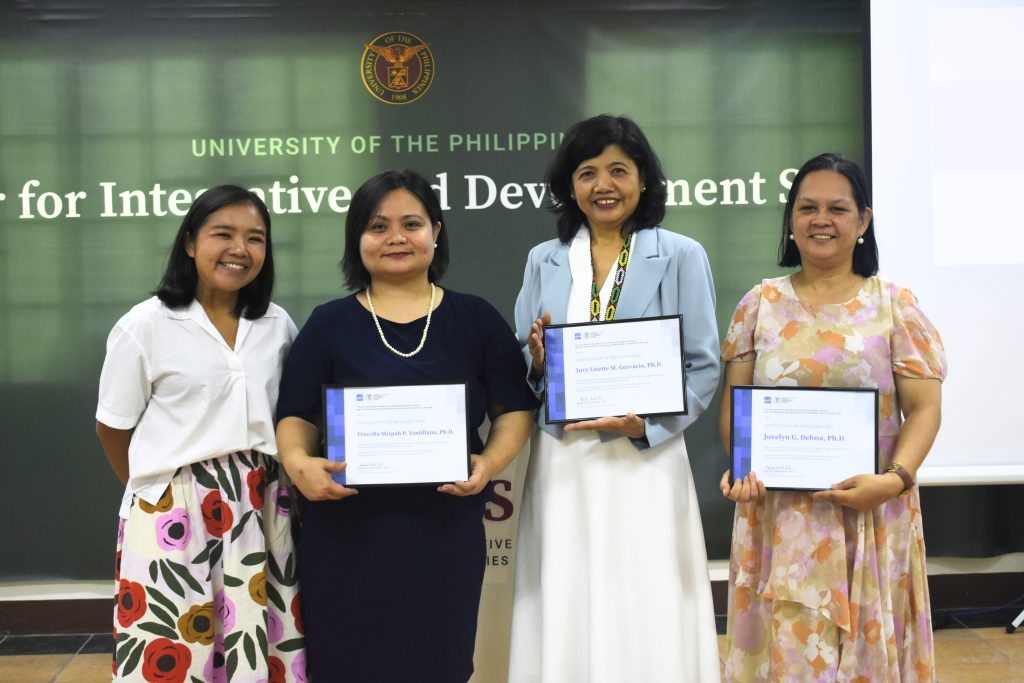Higher Education Symposium Presents Researchers’ Policy Recommendations

The Higher Education Research and Policy Reform Program (HERPRP) of the UP Center for Integrative and Development Studies (UP CIDS) concludes its fellowship program with a hybrid symposium held on November 5, 2025 at the UP CIDS Office in Diliman, Quezon City. The event showcases the final policy recommendations of the 2025 research fellows, reflecting key issues affecting higher education internship regulation, accreditation qualities, and emerging technologies.
Prof. Priscilla Mizpah P. Santillana, Ph.D., of the University of Batangas presents her study, “Developing the Internship Quality and Learning Index: A Framework for Evaluating and Developing Host Training Establishments.” Her research emphasizes the need for a systematic approach to evaluating Host Training Establishments (HTEs) through the proposed Internship Quality and Learning Index (IQLI) Framework, which may serve as a basis for developing specific evaluation criteria for internship sites. She recommends that the Commission on Higher Education (CHED) revisit and refine CHED Memorandum Order No. 104, Series of 2017, particularly in clarifying the definition and standards of “reputable HTEs.” She furthers that CHED develop and publish a roster of accredited and high-performing HTEs, potentially incentivized through tax exemptions in recognition of their role in mentoring interns and supporting higher education institutions’ (HEIs) training objectives. Prof. Santillana also highlights the importance of involving industry representatives in the design of Outcomes-Based Education (OBE) curricula to strengthen academe–industry collaboration and ensure labor market relevance. Additionally, she advocates for the institutionalization of internship as an intentional and structured learning process, complete with clear learning plans, interventions, and assessment mechanisms. Finally, she recommended including explicit provisions in the Policies, Standards, and Guidelines (PSGs) of degree programs to outline prerequisites, preparation requirements, and quality assurance mechanisms for internship implementation.
Assoc. Prof. Jovelyn G. Delosa, Ph.D., of Northern Bukidnon State College shares her research on “Accreditation, Student Outcomes, and Continuous Quality Improvement Mechanisms: An Inquiry.” Her study argues that accreditation must shift from a predominantly compliance-oriented model to one that promotes continuous improvement, innovation, and pedagogical enhancement. She highlights the need for HEIs to strengthen outcome-based evidence through graduate tracking and longitudinal assessments that measure employability, competencies, and authentic learning outcomes. Dr. Delosa also stresses the importance of contextualizing accreditation standards to accommodate institutional diversity, particularly among rural and resource-constrained HEIs, and of fostering a culture of inclusivity in accreditation processes that engages faculty, students, and administrative staff. She furthers the importance of investing in institutional capacity building, leadership development, and data-driven decision-making to support continuous quality improvement. Her study also calls for collaborative and developmental approaches to accreditation, as well as the need for sufficient resources, digital infrastructure, and institutional support to ensure equitable quality assurance practices across the higher education sector.
Assoc. Prof. Juvy Lizette M. Gervacio, Ph.D., of the University of the Philippines Open University discusses “Crafting the Rules of Intelligence: Policy Insights on the Use of AI and Higher Education Policies from Asia and Europe.” Her study examines the evolving landscape of artificial intelligence (AI) governance in higher education and identifies policy gaps and opportunities for Philippine HEIs. She argues that institutions must adopt holistic, systemic, and sustainable approaches to AI policy formulation to ensure ethical, effective, and equitable use of emerging technologies. At the national level, she emphasizes the need for clear and coherent regulations to guide HEIs, particularly those lacking institutional policies and digital infrastructure. In the global context, she highlights the importance of structured collaboration with international partners to share best practices and co-develop inclusive AI standards. Within the Philippine context, Dr. Gervacio shares the necessity of aligning national policies with international ethical frameworks, addressing infrastructure and usability challenges, strengthening institutional autonomy in AI governance, and improving digital competencies among faculty, students, and administrative staff. She also emphasizes the need for accessible, intuitive, and context-relevant technological tools supported by sustained training and user assistance.
Asst. Prof. Leonardo D. Tejano, MA, of Mariano Marcos State University was unable to attend due to a medical emergency.
The full manuscripts of all participating researchers will be made publicly accessible through the UP CIDS website in 2026.

